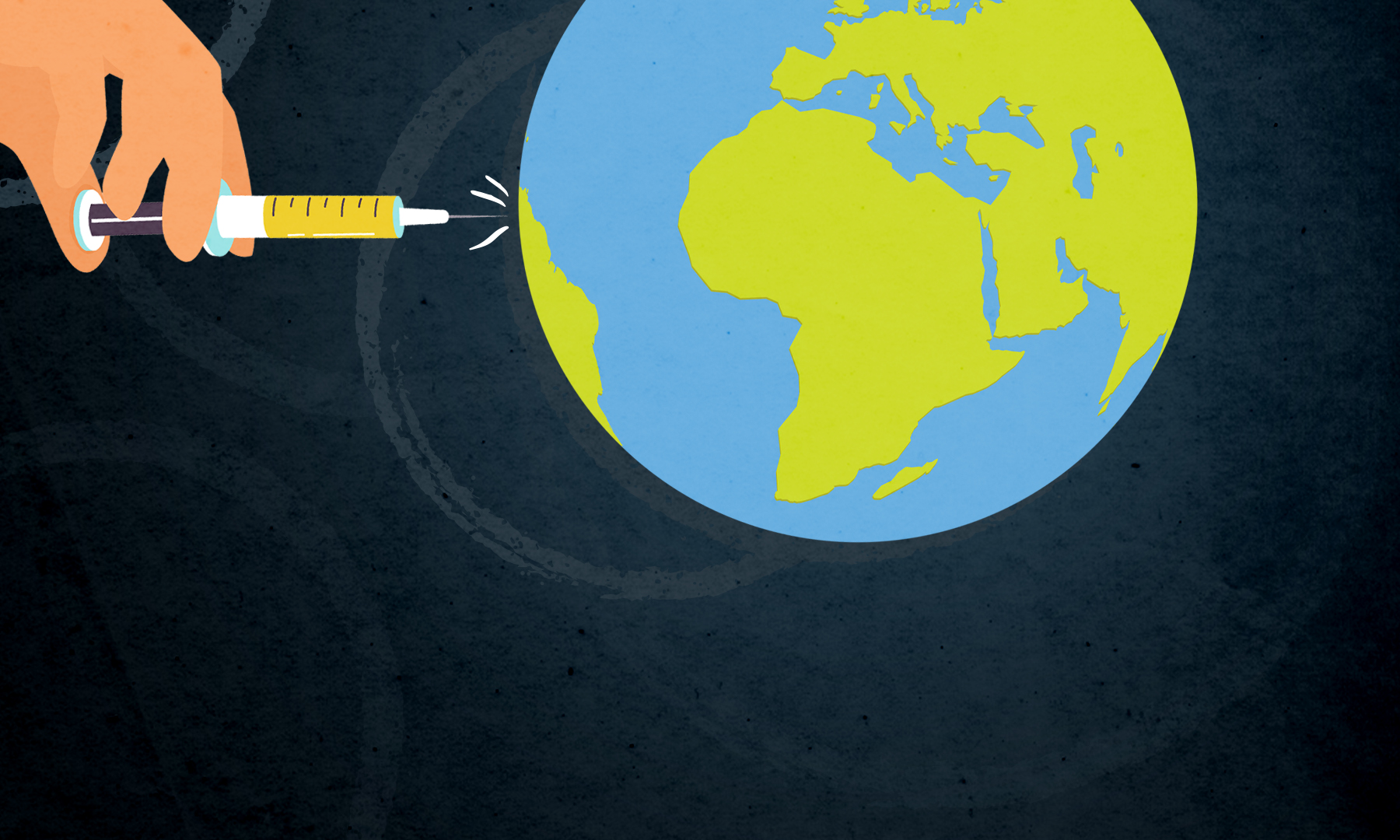Give poor countries the coronavirus vaccine for free
Get rid of the pandemic everywhere, as soon as possible


The coronavirus vaccines are being rolled out. Thus far Israel is way ahead of the pack in getting the shots out, with over 9 percent of its population reportedly having received an initial vaccine dose as of Thursday. Bahrain is in second place, followed by the U.K. and the U.S. — where the Trump administration's performance is, as usual, falling far short of promises. The European Union has been slower with its approval process, but given the far greater state capacity on that continent, they will surely get moving fast now that the first vaccine has been approved, with more coming soon.
Poorer countries, alas, are at the back of the pack. Most of them have struggled to even secure a place in line for doses, and Reuters reports the World Health Organization program to distribute vaccines to them is a disorganized mess. Internal documents show a serious possibility of "nations home to billions of people with no access to vaccines until as late as 2024[.]"
There's surely no way around rich countries prioritizing their own citizens. But the very moment there are plenty of doses to go around — when it becomes a question of distribution rather than supply, which looks possible in mid-to-late 2021 — the rich world should send out vaccines to every resident of every poor nation for free.
Subscribe to The Week
Escape your echo chamber. Get the facts behind the news, plus analysis from multiple perspectives.

Sign up for The Week's Free Newsletters
From our morning news briefing to a weekly Good News Newsletter, get the best of The Week delivered directly to your inbox.
From our morning news briefing to a weekly Good News Newsletter, get the best of The Week delivered directly to your inbox.
The first and most obvious reason to do this is moral. It's simply unjust for the residents of poor nations to continue to suffer the pandemic because their governments can't outbid the rich world or can't afford to buy up enough doses all at once. A recent United Nations report on the 47 poorest countries (home to just over 1 billion people) found the pandemic has created the worst economic performance there in at least 30 years, with serious exchange rate pressure on currencies and a marked rise in poverty. Such countries can barely feed themselves, let alone shell out billions for vaccine doses.
But there are self-interested reasons to give away vaccines as well. For one thing, there is a non-trivial amount of economic activity that depends on interactions between all nations. Raw materials production, manufacturing, tourism, and so on — all these are greatly enabled by people being able to travel freely between countries. The global economy is thoroughly interdependent, and the more countries that can be certified as virus-free, the more the economy can return to normal.
Now, poor countries are often victimized by trade, and as I have written before, the global economy could badly stand to be reformed to help the working classes of all nations. But until that happens, my point here is that even on the most self-interested grounds, there is every reason for the rich world to pay for universal vaccination.
More importantly, getting the spread of coronavirus down as far as possible — ideally eradicating it altogether — would be a great benefit for all the nations of the world. It's not clear yet how long vaccine immunity lasts, whether people will need booster shots, and so forth. The fewer chances there are of the virus breaking out and igniting more spread, the better.
Allowing the virus to circulate anywhere is also dangerous because of mutation: The more people there are contracting the disease, the more chances it gets to transform into a worse form. A slight variant is circulating in the U.K. and other countries right now that is apparently much more contagious, which will make it even harder to reach herd immunity. The coronavirus is more stable than the flu virus, but it's still possible it might mutate to a much more deadly form, or one on which these vaccines do not work. It seems fair to conclude that most residents of rich countries would pay quite a lot to not start back at square one with a fresh pandemic.
Finally, the money we are talking about here is trivial. The U.S. government has negotiated a wholesale price for the various vaccines of between $3 and $37. Let's be conservative and budget $50 per dose to account for shipping and storage, and say we want to inoculate the bottom three billion people. That means a total price of $150 billion — call it $75 billion each, split between the E.U. and the U.S. That's chump change in a $20 trillion American economy, and it likely wouldn't even be that much.
This pandemic has been the greatest mass casualty event in a century in the United States, the worst since the Second World War in Europe, and has created the worst economic disruption since the Great Depression. It would be worth paying 10 times the above figure to lower the chance of a recurrence as far as possible.
The best candidate for mass vaccination is probably the AstraZeneca/Oxford formulation, which was recently granted emergency approval in the U.K. (Its studies have been somewhat haphazard, but more trials will be published soon.) It is more traditional than the other two main shots and thus does not require expensive and burdensome ultra-cold storage temperatures, though initial data shows it as somewhat less effective. AstraZeneca has also promised to sell the doses at cost — but again, even a few dollars per shot is going to be a major obstacle for the poorest countries.
A free vaccine could be done through the WHO, whose vaccine distribution program is lacking money, or it could simply be done unilaterally, with rich nations sending out planeloads full of doses, together with instructions and assistance to make sure they are handled correctly, as needed. (Incidentally, this might go some distance to repairing the stupendous damage Trump did to America's reputation.) Either way, it should happen at the earliest possible moment.
A free daily email with the biggest news stories of the day – and the best features from TheWeek.com
Ryan Cooper is a national correspondent at TheWeek.com. His work has appeared in the Washington Monthly, The New Republic, and the Washington Post.
-
 Critics' choice: 2025 James Beard Award winners
Critics' choice: 2025 James Beard Award winnersFeature Featuring a casually elegant restaurant, recipes nearly lost to war, and more
-
 How will Trump's spending bill impact student loans?
How will Trump's spending bill impact student loans?the explainer Here's what the Republicans' domestic policy bill means for current and former students
-
 Can the US economy survive Trump's copper tariffs?
Can the US economy survive Trump's copper tariffs?Today's Big Question The price hike 'could upend' the costs of cars, houses and appliances
